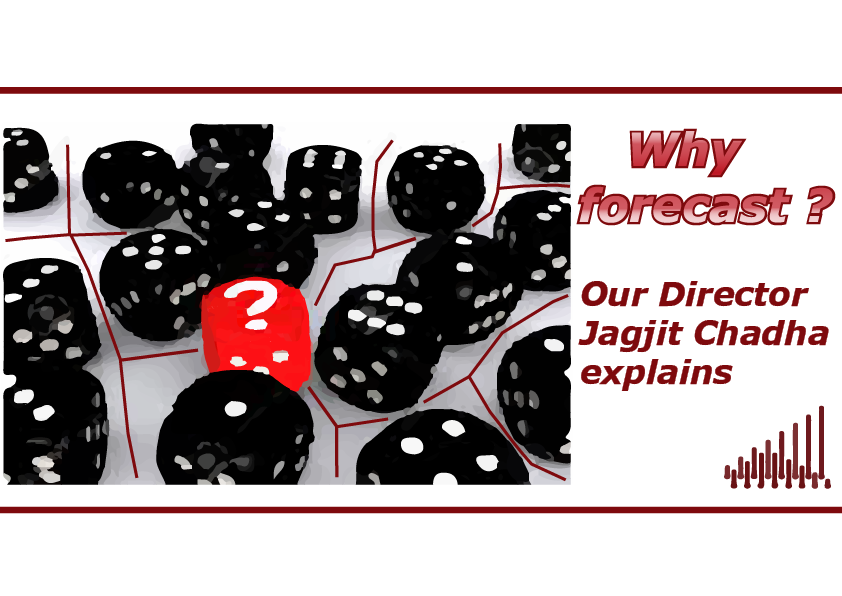Friday Flyer: The point of economic forecasting is the distribution
Economic forecasters ought to be thankful for pollsters otherwise they might look very bad indeed. The story often told is that a recession was forecast in the event of a vote to leave the European Union and because there has been no recession, economic forecasters have let us down. This story is not quite the truth

Economic forecasters ought to be thankful for pollsters otherwise they might look very bad indeed. The story often told is that a recession was forecast in the event of a vote to leave the European Union and because there has been no recession, economic forecasters have let us down. This story is not quite the truth. In May 2016 the National Institute Economic Review simply argued that growth would be broadly unaffected in 2016 and projected to be some1% lower than the baseline should the UK have voted to leave the European Union.
That said the substantive part of the story was always the long run. That is because the empirical relationship between growth and trade is so well established such that a reduction in trade seems likely to imply a reduction economic growth. And so when we combine a lower expected rate of growth with the distribution of possible outcomes, which is what we can calculate from previous episodes of economic news, a larger fraction of that distribution of likely outcomes will be below zero. It is the increased possibility of growth outcomes below zero that represent the heightened possibility of recession.
If you play with dice think of it as a game in the following way. Roll two standard dice that have one to six on their faces and forecast what number will come up and you will get paid that amount in pounds. The most likely number is 7, for which we can think of six combinations, which would then be your rational point forecast and so you might expect a £7 payoff from a dice throw and that is what you would be willing to pay to play the game. Think of this return of £7 as akin to the no change or remain scenario. But the probability of this forecast being right is merely a sixth. So the forecast is made in the full knowledge that it is more likely to be wrong than right. The question then facing us is the extent to which such a forecast may be useful.
The answer is yes because first it pins down the most likely number that may be useful for planning. We call this a measure of central tendency. Even if we want plan more broadly we can allow for some small errors, which will be even clearer if our forecast was to say that that the dice will equal 7 plus or minus two, which will be the case 2/3rds of the time and this fraction broadly corresponds to the amount of time the economy spends in normal times. But the randomness implied by any one event means we cannot be at all sure what number will be returned but under repeated trials we can form distributions that equal the likely probabilities of various events. So what you will value is the distribution or what we also call the risks to the forecast, as they will correspond to particular draws on the dice or equivalently economic shocks.
Now if we were to take the view that an economic cost or tax were to come along and this meant that it would cost you £3 of whatever you rolled, you would then forecast that the return from the game would only be £4 (i.e.£7-£3 ) and so the probability of a negative return has increased from zero to 1/12. The forecasts of the impact of the referendum result in the short run implied exactly that although we can expect worse returns for a while, we still might be lucky.
It is quite obvious that we cannot know the future. But it is equally obvious that we cannot afford not to think and plan for the future. Our projections about future states of the world depend on a combination of information and models, which are essentially devices for turning that unstructured information into a view. Even if we make the most extreme assumptions and assume that all relevant information is free, we would still not say that this structural view is anything other than a false depiction of the world that will transpire. So they need to be treated with care, particularly when they are used to inform policy. Forecasts can be used or abused but they need to be made.

















